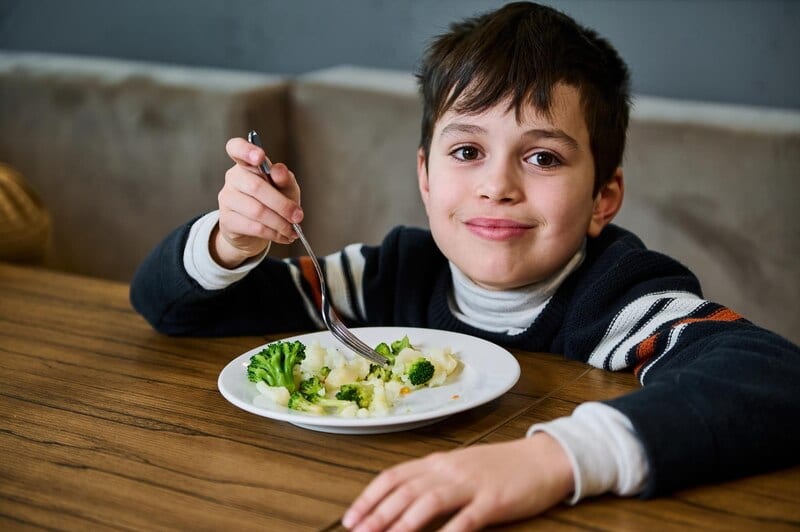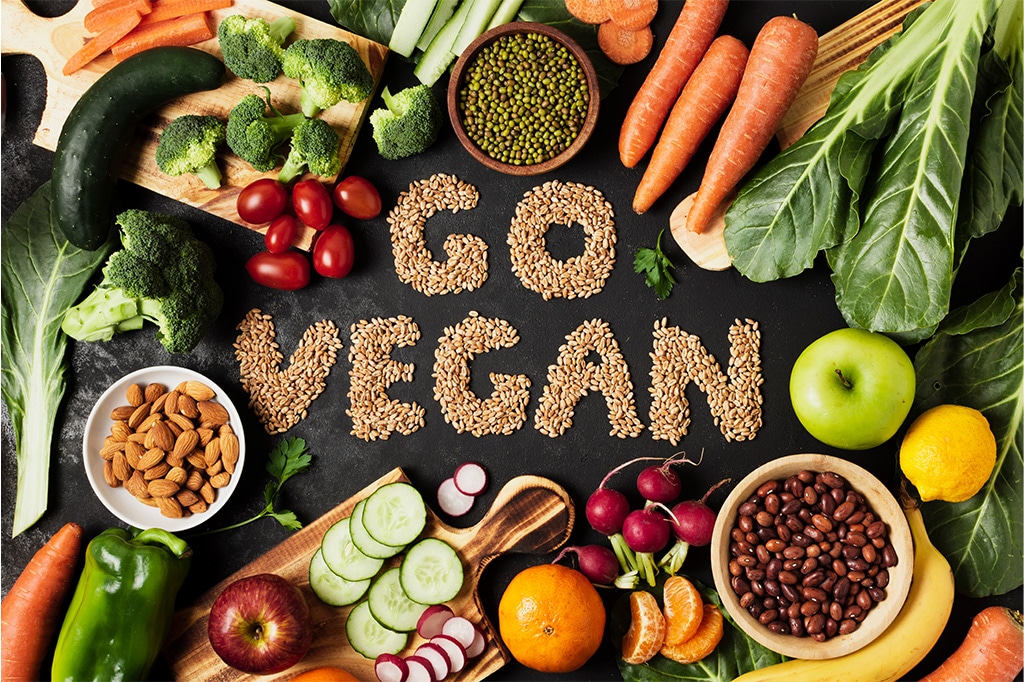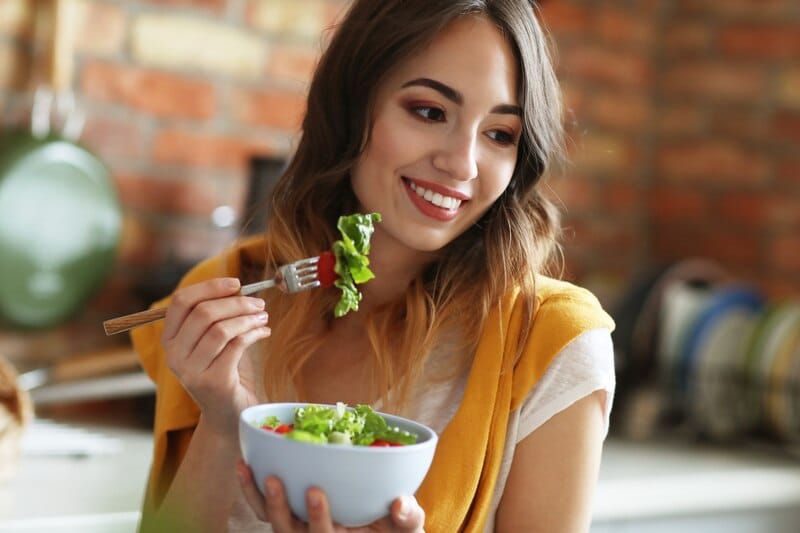As children return to school, several programs, including Veganuary’s inaugural fall campaign, are geared toward facilitating their access to vegan meals and dairy-free milk.
During the 2022-2023 school year, many initiatives are in the works to ensure that students have the most access to vegan options. In schools around the United States, the availability of vegan food and dairy-free milk varies widely, with some places serving the same greasy dairy pizzas and chocolate dairy milk while others advocate for more ethical, environmentally friendly, and healthier meals for children. Several efforts strive to eliminate this disparity so that all children can thrive.
An antiquated policy about dairy milk is a barrier to providing a broad range of vegan options in schools. Under the National School Lunch and School Breakfast Programs (NSLP), a USDA law influenced by dairy industry lobbying, schools must serve dairy milk to receive meal reimbursement from the NSLP. Federal regulations require that program participants “may not discriminate against the consumption of cow’s milk before or after school, on school property, or at school-sponsored events.” The NSLP, which was established in 1946, serves over 30 million children in over 100,000 schools.
The rule is based on assertions that dairy is nutritionally necessary for children, although many of them are lactose intolerant, particularly children of color. According to research, up to 80% of Black and Latino people, up to 95% of Asian people, and more than 80% of Indigenous Americans cannot digest lactose without experiencing side effects such as diarrhea, nausea, cramps, and bloating.

This week, a group of 28 organizations, including the National Urban League, the National Action Network Washington Bureau, the NAACP’s Maryland State Conference, Switch4Good, and the Coalition for Healthy School Food, sent a demand letter to the USDA regarding this policy, which they deem to be dietary racism. Dr. Milton Mills said in a statement, “If Black lives matter, so does our health and nutrition, but the NSLP has continually failed children of color.” “Either pupil consume the provided milk and struggle to study in class, or they go without a nutritionally significant element of their lunch.”
The group is requesting that the USDA revise the NSLP policy to reimburse schools proportionally for supplying soy milk, which the federal government acknowledged as nutritionally similar to dairy milk in the 2020 dietary standards. It is difficult to imagine a more inequitable and socially unjust USDA practice than forcing sick children to consume cow’s milk, Olympic cyclist and executive director of Switch4Good Dotsie Bausch stated in a statement. If 80 percent of white children became ill after consuming milk, schools, parents, and government institutions would scramble to find a solution.
Jo Saint-George, the Chief Legal Officer of Women of Color for Equal Justice, notes that the NSLP stands in stark contrast to the ideas underlying the USDA Equity Commission, a 15-member panel tasked with strengthening the organization’s equitable procedures. Saint-George stated in a statement, “The USDA’s own anti-discrimination statute requires the agency to take action to address the current unfairness against lactose intolerant youngsters.” Inaction undermines the fundamental legitimacy of the USDA Equity Commission.
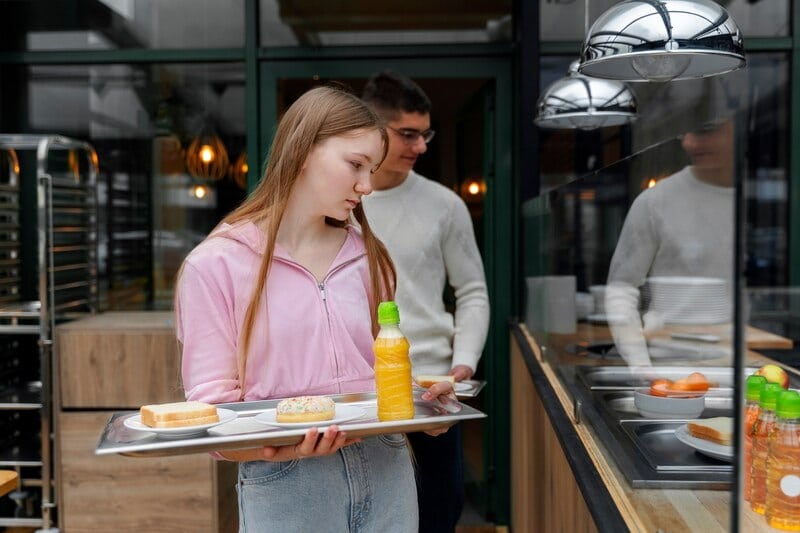
Introducing a vegan school lunch menu
While the USDA demand letter seeks to ensure that students have equal access to dairy-free milk, other developments are contributing to the inclusion of vegan food on school menus. In Illinois, Governor JB Pritzker signed new legislation in May that will increase the number of plant-based meals available to nearly two million schoolchildren. Under the new rule, which takes effect in August 2023, all Illinois schools must give students who desire a plant-based meal that complies with federal nutrition regulations. This new regulation also fulfills additional standards, such as those followed by Muslim students following halal dietary laws.
Plant Powered Fridays, a program championed by New York City Mayor Eric Adams, who restored his health by adopting a plant-based diet after being diagnosed with Type 2 diabetes, is also being implemented in the city’s schools. This program, which was first implemented in February, allows more than 930,000 pupils in the New York City public school system access to vegan cuisine every Friday.
By allocating $700 million of the state’s $308 billion budget earlier this year, California made tremendous progress in this direction. This amount will be divided into two sections, with $100 million going directly to assisting schools in the procurement of plant-based foods, sustainably produced foods, California-grown foods, and foods to satisfy students’ dietary needs. The other $600 million will be spent on modernizing school kitchen facilities and educating and rewarding food service staff who will be responsible for making new plant-based meals and enhancing scratch-cooking.
In June 2021, Nydia Velázquez (D-NY) and Jamaal Bowman (D-NY) introduced the Healthy Future Students and Earth Act (H.R.4108) at the federal level. This bill would establish a voluntary pilot grant program to encourage school districts to serve plant-based, environmentally sustainable, and culturally relevant meals.
Billie Eilish, a vegan musician, made a brief break from her Happier Than Ever World Tour in February to express her support for H.R.4108 on Capitol Hill. Eilish said in a statement, “I’m delighted to campaign for this legislation that will help address climate change, food insecurity, and promote health justice.”
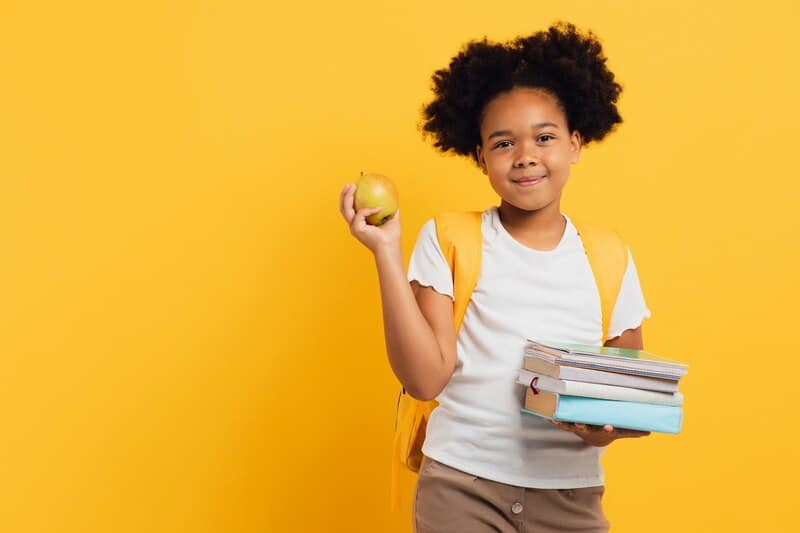
Veganuary’s Challenge for Vegan School Lunches
While many children rely on school lunches for nourishment, some parents can pack their children’s meals. With its inaugural fall campaign, Veganuary aims to encourage parents to bring vegan school lunches in 2018. Veganuary often encourages individuals to adopt a vegan diet for January and beyond. This year, Veganuary is supporting the Vegan School Lunch Challenge, which runs from August 16 to September 13 and aims to encourage families to consume at least one plant-based lunch every week.
To assist parents in packing a vegan school lunch, Veganuary collaborated with the vegan brand Forager Project, which produces Kids Cashew milk Yogurts, to develop a toolkit with a variety of kid-friendly recipes and information about plant-based nutrition.

